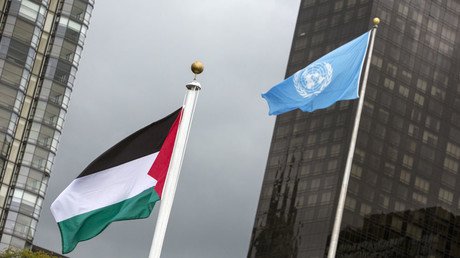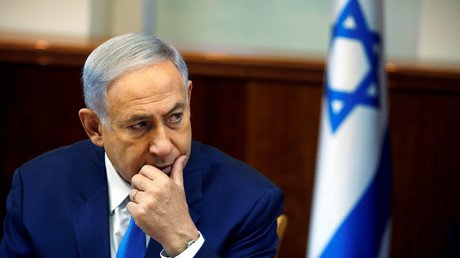Putin wants Russia to be part of Europe, not its enemy – Shimon Peres to RT
President Putin is no enemy to Europe and can work successfully with the US on solving the Syrian crisis, the former Israeli PM Shimon Peres told RT. He also shared his vision concerning the Middle East peace process and fighting extremism in Europe.
Peres, a 93-year-old Nobel Peace Prize winner and Israeli political heavyweight, spoke to RT’s Paula Slier, who mentioned the fact that he met Russian president Putin on multiple occasions.
“I understood that actually, that Putin has in his heart, a wish not to fight Europe, but to be part of Europe,” Peres, a former Israeli President and Prime Minister said, apparently referring to the recent heightened tensions between Russia and the EU.
As for Moscow and Washington, Peres is sure that they can to work together to solve the Syrian crisis. He also cited close cooperation between the countries regarding the elimination of Syria’s chemical weapons.
“I think they are negotiating now how to handle the Syrian situation at large, no matter what is being said or flags that everybody is carrying.
“Finally, they cannot solve their own problems without coming to peace,” Peres said.
The Israeli political veteran then cited resolving the 1962 Cuban Missile Crisis and the 2011 “reset” between Moscow and Washington as evidence to his statement regarding the possibility of cooperation between the US and Russia.
“I don’t think that any of them would like to go to war,” he said.
I think they quarrel because they have to convince their own people that they are the better side. The real Cold War wasn’t about land, wasn’t about anything material, wasn’t about wealth. It was that the two leaderships, the American and the Russian, wanted to convince their own people that their system was better.”
Peres won the 1994 Nobel Peace Prize together with the then Israeli PM Yitzhak Rabin and Palestinian leader Yasser Arafat, for the creation of the 1994 Oslo Accords, the famous agreement which brought both Palestinians and Israelis to the table after decades of war.
Asked if peaceful solution between Israel and Palestine is within reach under hardline Prime Minister Benjamin Netanyahu, he defended the Israeli leader, saying: “[He] says he is for two-state solution, he says he seeks peace.
“Maybe the way he does it is not the right one, and many people think so. But that’s not a reason to interrupt the effort. Even if you don’t achieve peace right away, the effort to achieve peace is part of peace,” Peres claimed.
In regards to Islamic State (IS, previously ISIS/ISIL), Peres does not think that the terror group will last long, while their ideologically backward agenda makes no sense whatsoever.
They’re not a state. They’re a non-state [group] that wants to win wars, for example, against crusaders.
“I’d tell the gentlemen they’re a bit too late. How can you win over crusaders?”
In the meantime, Europe, which has recently seen a string of deadly terror attacks organized or claimed by IS, “has no choice” other than live in peace. He stressed that science and education might help prevent extremism and radicalization among youth.
“Muslims are a religion,” he stressed. “The problem is that many terrorists call themselves Muslims … we have really to enable young generations of Arabs and non-Arabs to enjoy [what] the age of science [offers].”
Peres served as the ninth President of Israel from 2007 to 2014, and twice as the Prime Minister of Israel. He has also been a member of 12 cabinets in a long-lasting political career spanning over 66 years since the very foundation of Israel in 1948.















